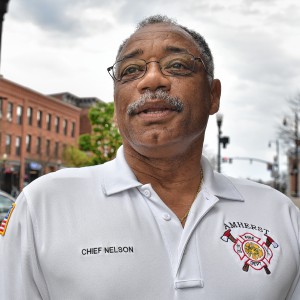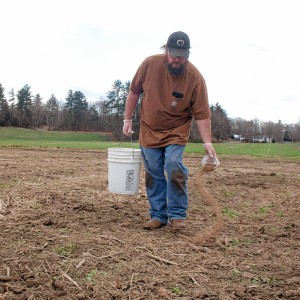Hilltown police forces in transition
| Published: 07-06-2021 7:55 PM |
Policing is changing in the hilltowns, and more change is on the horizon.
Both Worthington and Plainfield moved to having full-time chiefs this year. Chesterfield and Goshen are considering regionalizing their police departments after the chiefs in both communities retired this year. Then there is police reform, which will result in many hilltown officers going through significant additional training.
Still, a common thread among the chiefs interviewed is that their communities are supportive of the police.
“We’re very liked in Worthington,” said Worthington Police Chief Robert Reinke. “And the people are behind us in Worthington.”
At Worthington’s annual Town Meeting, the voters approved funding to shift Reinke’s position from part-time to full-time. “There’s too much paperwork to do on a part-time basis,” he said. “And it’s getting worse.”
Town Meeting also voted to fund the salary for a full-time officer. All members of the department had been working on a part-time basis, and there are currently four officers plus Reinke.
Reinke said that he lobbied for another full-time officer so he could get local backup. That job has been posted.
“Most of the part-timers don’t live around here,” Reinke said. “Or even close.”
Article continues after...
Yesterday's Most Read Articles
Reinke said that he has to book his own arrests, and that has to be done at another station because he can’t secure them in Worthington which doesn’t have a jail. Reinke also has to do his own paperwork.
“We have to do every aspect,” he said. “We own that arrest from cradle to grave.”
Reinke also said there will be issues in the future, as new training requirements mandate that part-time officers receive the same kind of training as full-time ones. He said that people won’t go through the training to work a part-time job.
An Act Relative to Justice, Equity and Accountability in Law Enforcement in the Commonwealth, which was signed into law in January, mandates a certification process that all police officers in the state must undergo.
“Going forward I don’t see any more part-timers,” he said. “The small towns are going to be in trouble.”
Voters at this year’s annual Town Meeting also moved to make the police chief a full-time position and approved funding that allowed for a full-time officer as well.
“We really have progressed to needing a full-time officer,” said Police Chief Justin Litchfield, who is also a member of the town’s volunteer fire department.
Sgt. Matthew Miazga is now being paid full time, and pay was raised across the department. However, weekly hours for the department were reduced from 92 to 85, leaving five hours a week to be divided among the department’s eight other officers.
Litchfield said that he is currently awaiting guidance for whether he and Miazga will have to do additional training under the new law, and that the town has budgeted no money for training the other officers. He said he’s been working with the Massachusetts Chiefs of Police Association to get assistance for the training.
“My guys are dedicated,” Litchield said. “They’re willing to volunteer that training.”
However, he said he thinks they should be reimbursed.
Litchfield said once the part-time officers complete their required training, which would allow them to work as full-time officers anywhere in the state, “they’re going to leave” although he did express hope that some would stay.
Additionally, he said another full-time officer would be justified in Plainfield to help cover weekends. Litchfield said that Plainfield has a higher call volume than people think. He noted that the town has a rehab center, has a large elderly population, and a speeding problem.
“We are busy,” he said.
Huntington has had a full-time chief since 1995, the year after Robert Garriepy became chief. However, all of the town’s officers are still part-timers.
“I’m not exactly sure what the future holds for any of these agencies based on the reform,” Garriepy said.
Garriepy said that the department consists of himself and five part-time officers and that he hasn’t brought in additional officers because he doesn’t know the cost of the reform. However, he said that western Massachusetts law enforcement has been working together to deal with the effects of the reform, with bigger city chiefs reaching out to the chiefs in smaller communities to see how they can help.
Details on the training requirements under the new law are still being worked out, he said.
Garriepy also said the department in Huntington has received strong community support.
“They’ve actually over-funded my requested budget,” he said. “They’ve never said no.”
Garriepy said that he’s seen Huntington transform from a mill town to a bedroom community in his time as a police officer. He said the department responds to animal complaints as well as fire and medical calls.
“We’re all together helping each other,” he said.
Jeffrey Fish, Chesterfield’s new acting police chief, has been a police officer in the hilltowns for two decades.
“We’re just going to keep up with what we have to for training and keep moving forward,” said Fish, on the subject of the new training requirements.
He also said that he’s waiting to get more information on the training before approaching the Select Board about it.
“The Select Board is aware of it,” he said. “And we will budget for the police officers that need to do the mandated training.”
Fish said the Chesterfield Police Department consists of himself plus six other officers, and that he and three others will have to do additional training under the reform.
Neither the chief nor any of Chesterfield’s officers are full-time.
Chesterfield and Goshen’s Select Boards have had a discussion about regionalizing their respective police forces.
“It’s a good idea to at least explore,” Fish said.
But he also noted that he’s not involved in those conversations at this time.
Cummington has a part-time chief and three other officers on its rolls.
“This is the fullest part-time job I’ve ever had,” said Cummington Police Chief Mike Perkins.
Perkins is paid a $15,000-a-year stipend and is paid hourly when he responds to calls. He has a $20,000-a-year police salary budget that his hourly pay comes from and which is also used to pay the department’s other officers.
Perkins said that he enjoys the community policing part of being a chief, and he noted that he can drive down Cummington’s streets and know where people live.
“That to me is the most important thing about policing,” he said.
Perkins said that he wants to get the new training regulations first before having a discussion with the Select Board and Finance Committee about moving to a full-time chief.
“We are going to have to do several hundred hours of training,” he said.
He said that of the four officers, two have to do the training. But he questions what impact that will have on the town.
“Once people are certified, why would people want to work in a town like Cummington?” he said. “Why would they want to work in a small rural community?”
Perkins said he wants to stay in Cummington as chief, but that he doesn’t know what the future will look like for the department.
He also said that he’s fortunate to work with the Select Board and Finance Committee, and he noted that the townspeople have been supportive as well, passing a budget with the necessary money for training at this year’s annual Town Meeting.
Perkins also said that until he came to Cummington, he never had to deal with large livestock, and referred to dealing with cows in the road.
“It’s one of those things that they don’t train you for,” he said.
Since at least the 1990s, Williamsburg has had a full-time police officer. Police Chief Denise Wickland is full-time, and was a full-time sergeant before that. Currently, the department has another full-time officer as well.
“That’s going to eventually become the normal,” she said. “I think that eventually that’s going to be the only option that we’re left with.”
Wickland said that historically part-time positions have been filled by people not in law enforcement and that with the elimination of a part-time police academy, the pool of officers certified to work part-time will dry up. She also said that small towns don’t have a competitive pay scale and that many have only one officer on duty at a time, which is not appealing given the danger of the job.
She said that she’s looking to see whether the three open part-time positions the town has will be combined into another full-time officer. She also said that she would ideally like to see four-full time officers in Williamsburg in the future.
None of Williamsburg’s five part-time officers will need to attend the bridge academy for additional training this year, due to where their names fall in the alphabet.
“Next fiscal year we are going to see an impact,” Wickland said, who noted that the Finance Committee and Select Board are very supportive.
Wickland grew up as the daughter of a hilltown police officer. Her father, Gary Wickland, was the longtime police chief in Chesterfield and she served as interim police chief in Chesterfield after his retirement.
“My father was my hero as long as I can remember,” Wickland said. “I just try to do him proud every day.”
Bera Dunau can be reached at bdunau@gazettenet.com.
 Amherst Fire Chief Walter ‘Tim’ Nelson to retire in June
Amherst Fire Chief Walter ‘Tim’ Nelson to retire in June First look at how little Amherst’s police alternative being used called troubling
First look at how little Amherst’s police alternative being used called troubling Petition to block auto dealership on King Street falters in Northampton
Petition to block auto dealership on King Street falters in Northampton  LIME SPREADER
LIME SPREADER
